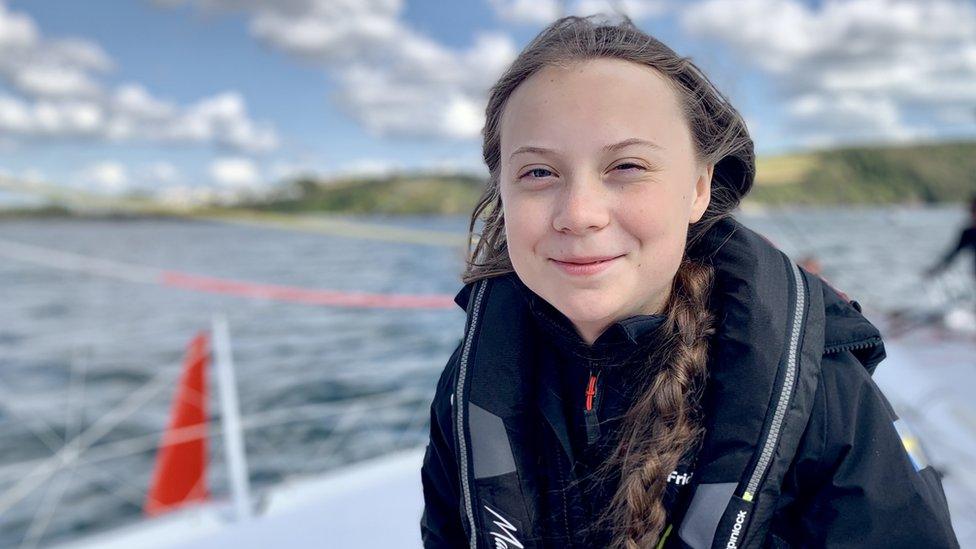Greta Thunberg's Atlantic crossing: 'Why I wanted to help'
- Published
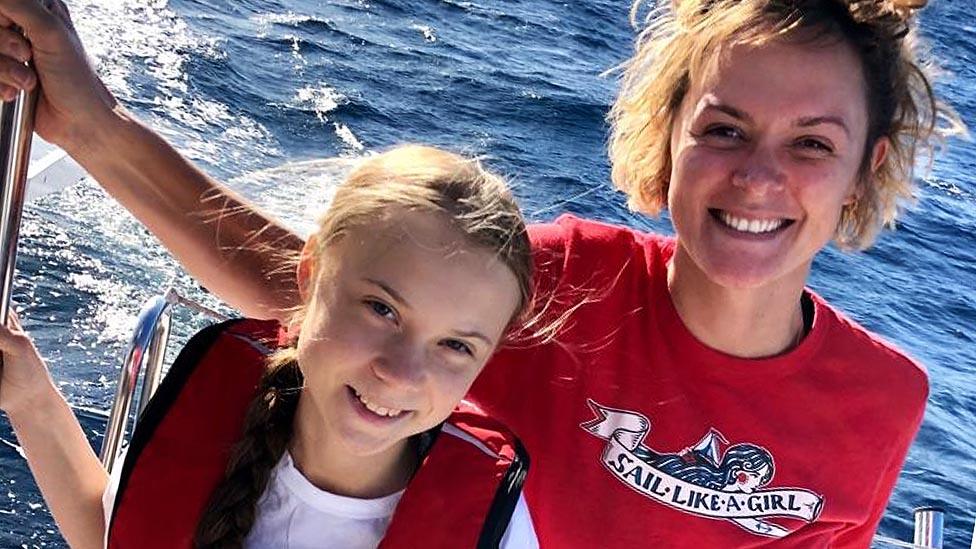
Greta Thunberg was on the wrong side of the world.
She'd taken 14 days to cross the Atlantic on a carbon-neutral journey via boat for climate change summits in the US and Chile.
But at the last minute political unrest meant the Chile talks moved to Spain.
She needed a crew to take her back to Europe - and she needed them quickly.
That's when Nikki Henderson stepped in.
"I helped because I wanted to see what Greta was really like, get to know her and be able to educate myself about what she represents," the 26-year-old British sailor tells Radio 1 Newsbeat.
The problem was that Nikki was in the UK when she was asked by Australian YouTubers Riley Whitelum and Elayna Carausu to join them on their yacht, ferrying Greta back to Europe.
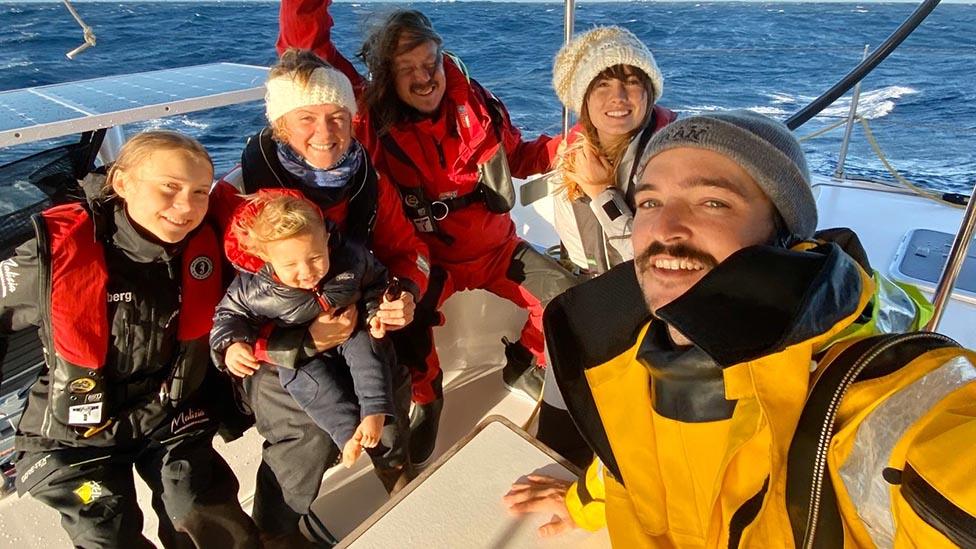
Nikki and Greta were joined on the boat by Greta's dad, YouTubers Riley Whitelum and Elayna Carausu and their baby, Lennon
And with just two days notice she had no choice but to fly to meet them.
She was criticised, external for that decision as the whole mission was supposed to be carbon-neutral.
"In an ideal world, yes, I would have sailed there and sailed back," she says.
"But this is a more symbolic trip. Greta wanted to sail because it's a good way to send a message to the world that there is no real sustainable option to travel.
"She's not telling anyone how to travel, she's not telling anyone how to live their life."
'We spent nights in a lightning storm'
So, Nikki, Greta, Greta's dad Svante, Riley, Elayna and the couple's baby Lennon set sail from Virginia, US on 13 November and spent nearly three weeks at sea on a 48-foot boat.
"We spent quite a lot of time together in quite a small space," Nikki says.
"We had most of our meals together. We sat outside together and had lots of conversations. We looked after Lenny the baby together."
But crossing the Atlantic in the winter isn't all about cosy dinners and sitting under the stars.
"We had a couple of nights in a lightning storm which was both amazing and, I suppose, quite scary," says Nikki.
"I saw a couple of streaks hit the water and spark quite close to the boat so they were quite tense nights although most people are looking out the windows and staring and saying: 'Wow'."
'Greta is obviously very brave'
As a professional sailor, Nikki says that she knows to be prepared for the unexpected, but weather like this, 40-knot winds and five-metre high waves were "pretty nerve wracking."
However experiences like these also helped her learn more about Greta.
"I think it takes a certain type of person to cross the Atlantic in the winter - she's obviously very brave," says Nikki.
"I take my hat off to her and her father for joining us. That was a pretty courageous thing to do."
"They didn't do it for themselves, they did it to send a message. It felt very selfless."
After spending 19 days with her at sea, Nikki describes Greta as "friendly, quiet and kind" and says the experience has taught her why she is so "captivating."
"Her passion comes across if you know her as a person as well as if you see her on stage or you see a setting aside parliament on the floor," Nikki says.
"She's so captivating because she genuinely, authentically is true to her message in every way."
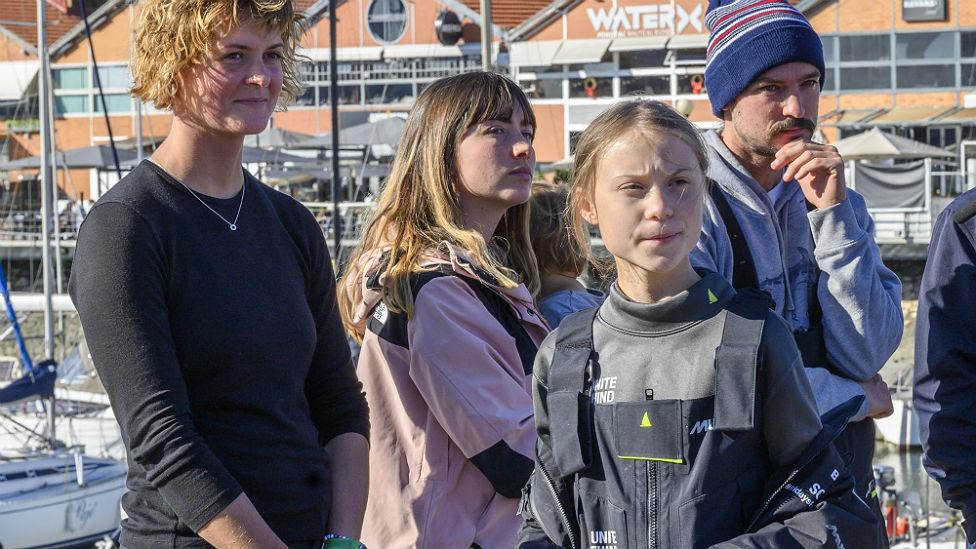
Nikki arrived in Lisbon with Greta on 3 December
The boat landed in Lisbon, Portugal on 3 December and Nikki says the arrival was a "culture shock."
"At sea you eat very simple food, you don't drink any alcohol, and you live a very simple life with no choice or showering," she says.
"Just seeing lots of people was a culture shock. Yesterday when we arrived in the dock, there were thousands and thousands of people."
'I'm sure we'll be in contact forever'
After reaching land, Greta and Nikki will travel on to Madrid, but she believes the experience they shared with the boat's crew will make them friends for life.
"A trip like that across an ocean builds bonds that are very, very hard to recreate in any other areas of life.
"I'm coming off with four very good friends, which I'm sure we'll keep in contact with forever."
Nikki will return to the UK by train.
While most people aren't able to sail across the Atlantic, Nikki does believe there are lessons to be learned from their journey.
"I think we did show that sailing across the Atlantic isn't very practical and that we do need more sustainable options available to the everyday person," she says.
"And I think there's definitely a message there about what you can achieve if you work together, compromise on certain areas of your life and you work with nature.
"You can achieve something really remarkable if you're if you're prepared to do that."


Follow Newsbeat on Instagram, external, Facebook, external, Twitter, external and YouTube, external.
Listen to Newsbeat live at 12:45 and 17:45 weekdays - or listen back here.
- Published3 December 2019
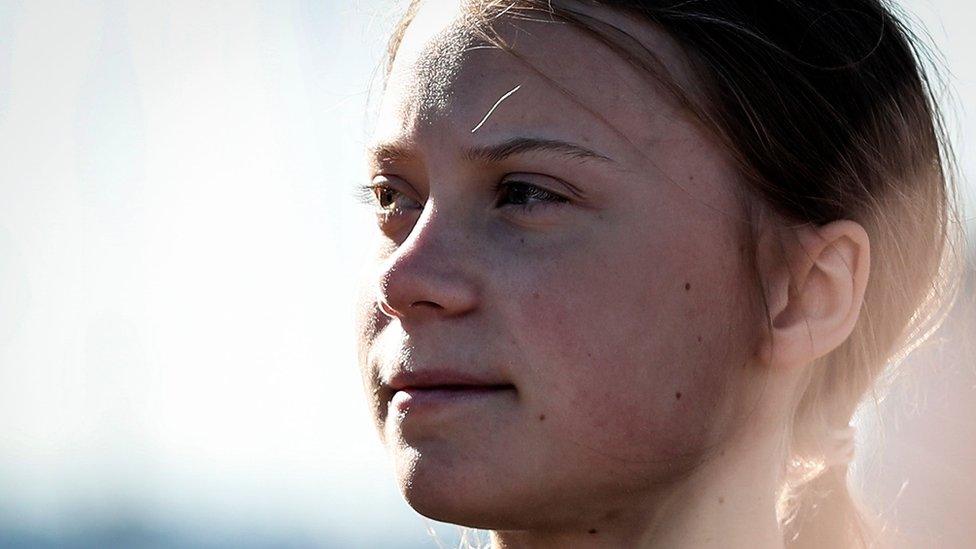
- Published13 November 2019
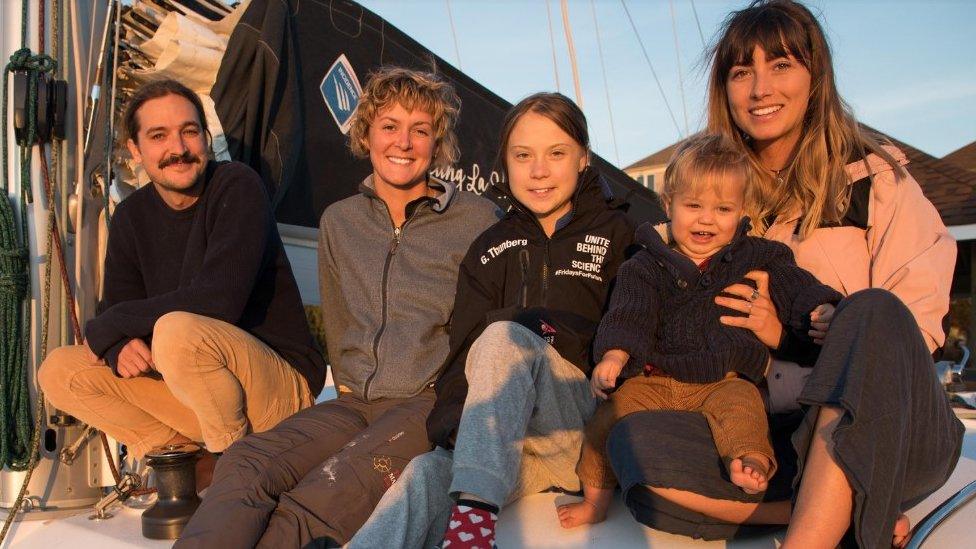
- Published14 August 2019
